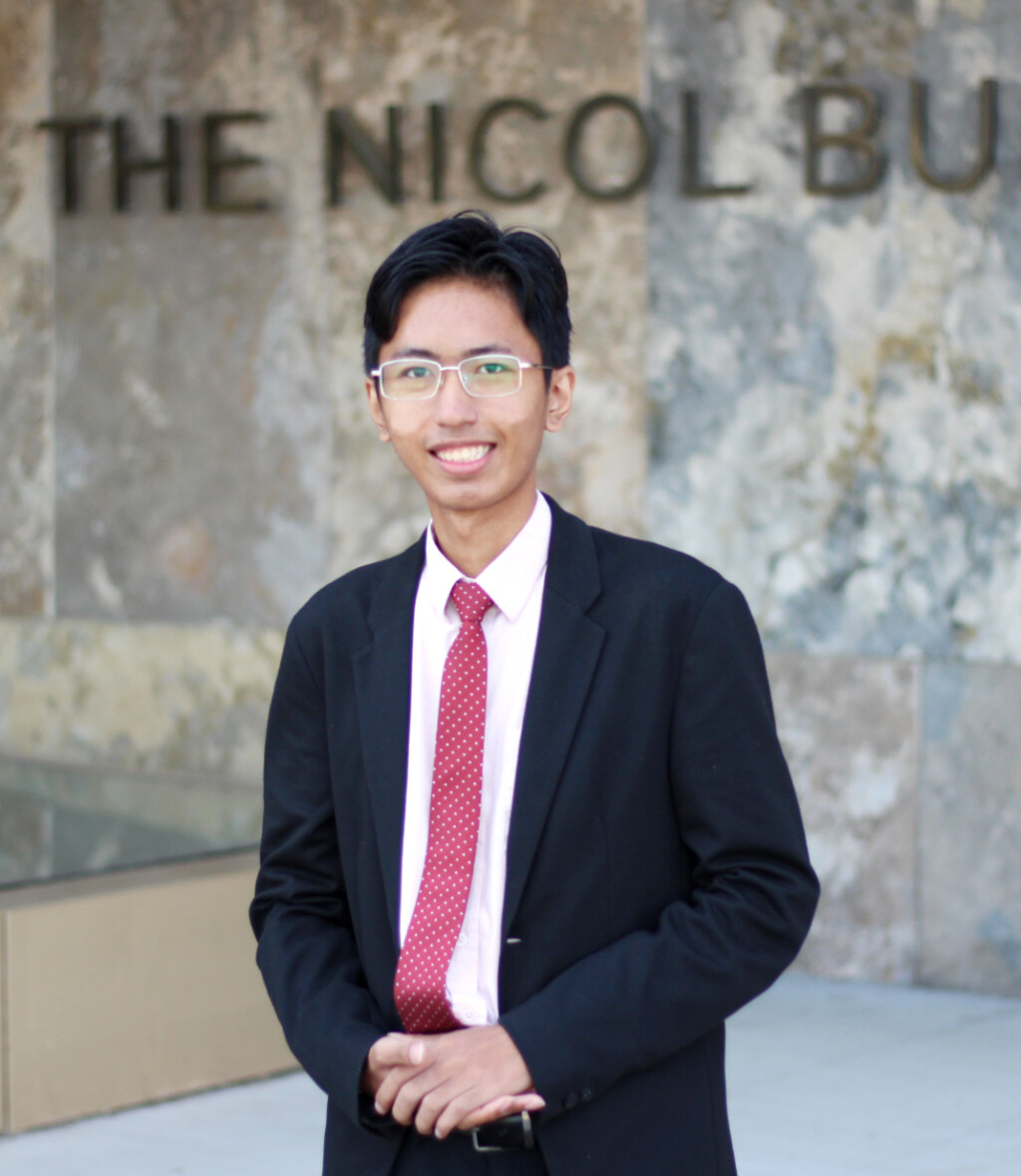International Development Programs in Myanmar’s Garment Industry
By: Min Thiha Tun, Bachelor of Commerce, concentration in Finance
Myanmar, my home country of over 55 million people, has experienced decades of military rule, followed by a brief democratic opening between 2011 and 2021, and then a return to authoritarian control after the coup. The apparel manufacturing is important to Myanmar’s economy and employs hundreds and thousands of workers, the majority of whom are young women from rural areas. This industry contributes substantially to the country’s economic growth and helps lift families out of poverty. However, weak labor protections, limited union rights, and volatile political conditions have harmed workers. These problems also limit how much the industry can help the country develop and prosper.

When I heard about Professor Jinsun Bae’s research on international development programs in Myanmar’s apparel manufacturing industry, I became instantly intrigued. I was curious what these programs do, why they chose to operate in Myanmar’s apparel industry, and how these programs may relate to international business. Thanks to Sprott School of Business for offering this valuable summer paid research program, I worked under the supervision of Professor Bae to study three such programs: Myanmar Productivity, Occupational Health and Safety, and Social Dialogue (MYPOD), Pyoe Pin, and Business Innovation Facility (BIF). I read the articles and reports about these programs and analyzed their goals, beneficiaries, activities, achievements, and challenges. Because I am fluent in Burmese, I was able to access local-language newspapers, reports, and industry publications that provided insights unavailable to non-Burmese researchers. This allowed me to contribute unique perspectives on how these programs were received locally and how they interacted with Myanmar’s political and social realities.
It was interesting to see how these international development programs, which aim to reduce poverty and facilitate economic and social development of developing countries, are intricately related to international business. Global brands rely on reliable and ethically compliant suppliers to safeguard their reputations. However, many of Myanmar’s apparel factories lacked qualifications to become suppliers for these brands, having been isolated from international business practices and expertise during the sanctions period. This is why international development programs like MYPOD, Pyoe Pin, and BIF established operations in Myanmar’s apparel industry. These programs provided factory training and helped apparel manufacturers develop better processes for resolving worker disputes, all designed to raise labor standards within these factories. Their theory of change was that as factories achieved higher standards, they could become qualified as suppliers for global brands. Increased production orders would generate more employment opportunities, ultimately improving the livelihoods of workers and their families.
This research experience provided me with valuable transferable skills. I strengthened my ability to critically analyze policies and outcomes, developed cross-cultural research skills, and improved my capacity to organize and synthesize qualitative data. Working under Professor Bae’s guidance also helped me practice collaboration, learn how to incorporate feedback, and see how research teams design and refine projects over time. These skills will be directly useful in my future career, where I hope to work at the intersection of international business and development. Studying Myanmar’s apparel industry gave me a deeper understanding of how international business can be leveraged to support a country’s economic and social development. Seeing how the studied programs did not continue after the military coup in 2021, I also learned that benefiting from these unique opportunities would require a supportive and stable political environment. From this experience, I became interested in working in a role that combines business growth and generating positive societal impact, both in Myanmar and in other international markets.
I am truly thankful to Professor Bae for her supportive mentorship, guidance, and encouragement during the summer. Her strong knowledge and dedication to rigorous academic research inspired me and showed me the kind of researcher and professional I hope to become. This experience has been a key moment in my academic path and has helped me better understand my future goals in research and international business.